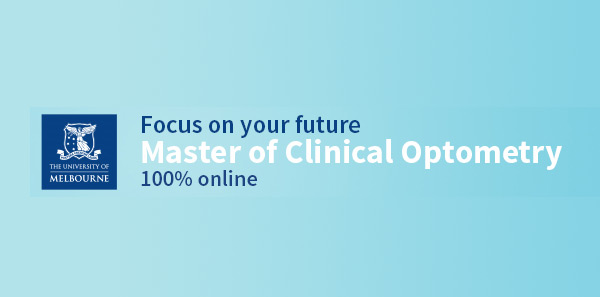1:30min
As the optometry profession transforms rapidly, there is a demand for optometrists to expand their scope of practice to meet new clinical needs.
Demographic, technological and economic shifts are all having an impact on optometry as a profession.
Additionally, as new issues in eye health emerge – influenced by factors as broad as the aging population to the increased use of technology – optometrists are having to frequently refresh their knowledge to stay abreast of current trends.
‘In the changing landscape of optometry there is more need for optometrists to expand their scope of practice,’ said Senior Lecturer, Department of Optometry and Vision Sciences at the University of Melbourne Dr Christine Nguyen.
‘For example, dry eye and anterior eye disease is a key area for patients and optometrists.
‘Traditionally found in older patients, dry eye is now more commonly presenting in younger people – with some studies linking this to increased screen time.’

A postgraduate course Dr Nguyen co-ordinates at the University of Melbourne, the Specialist Certificate in Anterior and Dry Eye Disorders, is designed to give practising optometrists the depth of knowledge to effectively manage these kinds of contemporary clinical problems.
‘The Specialist Certificate in Anterior Eye Disease and Dry Eye Disorders is delivered by a team of lecturers who have experience ranging from advanced dry eye management to keratoconic cross-linking,’ Dr Nguyen said.
‘In this manner, it assists practitioners to expand their scope of practice and stay highly informed about contemporary clinical issues.’
Applications are now open for the 100 per cent online Specialist Certificate in Anterior and Dry Eye Disorder, July intake. The flexible course structure at the University of Melbourne is designed so that multiple specialist certificates can build towards the Master of Clinical Optometry.
Other certificates, also with a July intake, are the Specialist Certificate in the Management of Neuro-Ophthalmic Disorders which aims to advance the ability to evaluate the sensory and motor pathways of the visual system, and the Specialist Certificate in the Management of Paediatric Patients which examines developmental, visual, medical and educational issues and develops capacity to work with other professionals involved in paediatric care.
Specialist Certificates in Glaucoma and Retinal Disease and Management of Contact Lens Patients are scheduled for intakes next March.
For more information head to mspace.unimelb.edu.au/courses/profession/optometrists.
Tagged as: Dry eye, Patient management, Scope of practice, Universities
